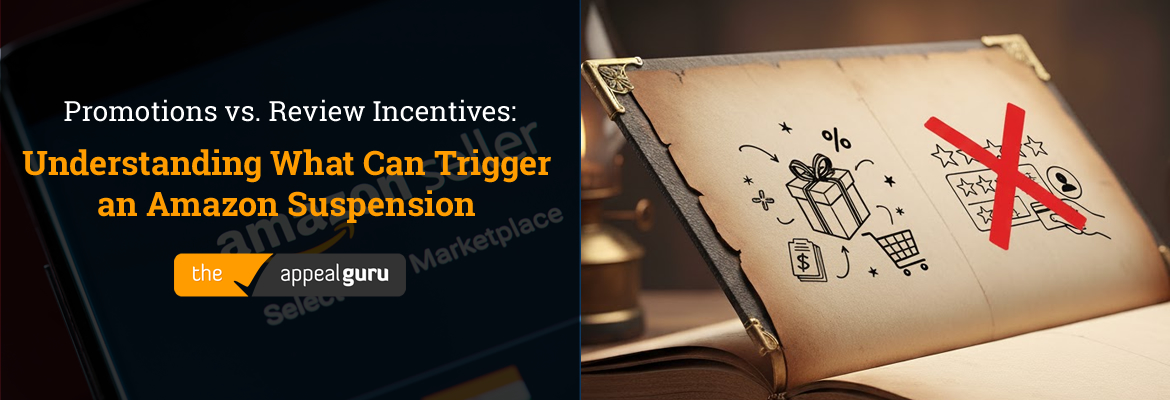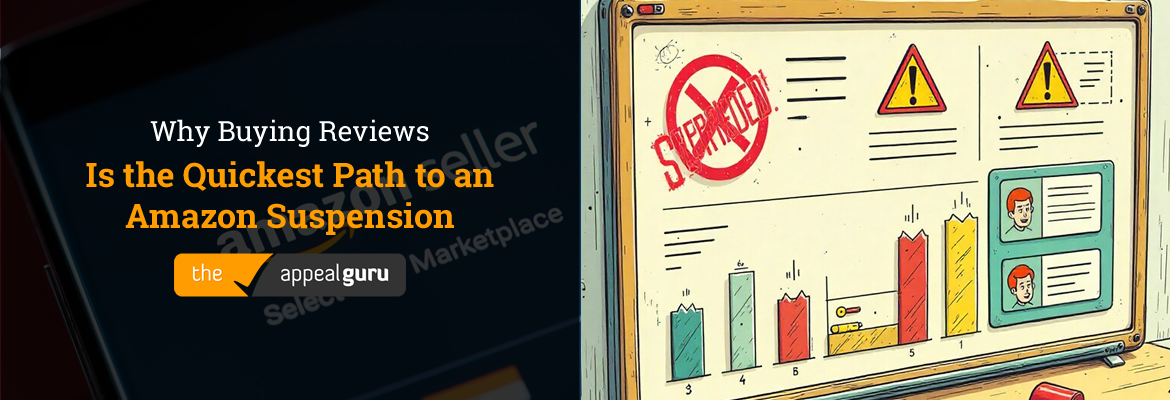
Understanding Amazon’s Review Policy and How to Stay Compliant
For every Amazon seller, reviews are like oxygen — they build trust, boost visibility, and directly influence sales. However, many sellers don’t realize that asking for reviews the wrong way can lead to serious consequences, including account warnings, restrictions, or even full suspension.
So, can you really be suspended for requesting reviews?
The short answer is yes — if it violates Amazon’s review policy. But that doesn’t mean you can’t request reviews at all. The key lies in how you ask.
Let’s break it down step by step.
Why Reviews Matter So Much
Customer reviews are one of the most powerful conversion factors on Amazon.
A well-reviewed product not only appears more trustworthy but also gains better ranking through Amazon’s search algorithm. That’s why many sellers feel tempted to speed up the process by asking customers for positive feedback or incentivizing reviews.
Unfortunately, this is exactly where things go wrong.
Amazon’s review system is designed to maintain authenticity and fairness, ensuring that every review represents a genuine customer experience. When sellers try to influence reviews — even unintentionally — Amazon treats it as review manipulation, which is a serious violation.
Amazon’s Policy on Review Requests
Amazon allows sellers to request reviews — but only under strict guidelines.
Here’s what’s permitted:
- You can request a review once per order through Amazon’s “Request a Review” button in Seller Central or automated systems integrated with it.
- You can also send a neutral, non-biased message asking for a review through Amazon’s Buyer-Seller Messaging system.
However, you must never:
- Ask for a positive review (e.g., “Please leave us a 5-star review”).
- Incentivize reviews with discounts, free gifts, or refunds.
- Request review removal or alteration.
- Filter who you ask (for example, only asking happy customers).
- Use manipulative language like “If you’re satisfied, leave a review; if not, contact us privately.”
These might seem like minor mistakes, but Amazon’s algorithms and compliance teams are extremely strict.
Examples of Policy Violations That Can Lead to Suspension
Let’s look at some real-world examples that have caused sellers to be suspended:
- Offering Freebies or Discounts for Reviews
- Example: “Leave us a review and get 10% off your next purchase.”
- Result: Immediate policy violation and possible suspension for review manipulation.
- Asking for Only Positive Reviews
- Example: “If you love our product, please leave us a 5-star review.”
- Amazon views this as biased solicitation.
- Using Insert Cards Incorrectly
- Many sellers include product inserts asking for reviews.
- This is allowed only if the message is neutral — such as “We’d love your feedback.”
- If the card says, “Happy with the product? Leave a 5-star review!” it becomes a violation.
- Contacting Customers Outside Amazon
- Using personal emails, social media, or WhatsApp to ask for reviews violates Amazon’s communication policies and privacy rules.
What Happens If You Violate the Policy
If Amazon detects suspicious activity related to reviews, you may face the following actions:
- Performance Notification or Policy Warning: A first-level warning asking you to correct your behavior.
- Listing Suppression: Specific product listings may be temporarily suspended.
- Account Suspension: In serious cases, Amazon will suspend your entire selling account for review manipulation.
Once suspended, getting reinstated is not easy. You’ll need to submit a Plan of Action (POA) explaining what went wrong, what you’ve corrected, and how you’ll ensure compliance moving forward.
Many sellers end up hiring professional appeal services because reinstatement requires precision and compliance understanding.
How to Request Reviews the Right Way
Now that you know what not to do, let’s focus on the right approach.
Here are safe, Amazon-approved methods to request reviews:
- Use the “Request a Review” Button
- Found in Seller Central under each order.
- Amazon sends a standardized message to the buyer asking for both a product and seller review.
- It’s 100% compliant and risk-free.
- Found in Seller Central under each order.
- Use Buyer-Seller Messaging Properly
- You may send one message after delivery.
- Keep it neutral and concise. For example:
“Thank you for your purchase! We hope you’re satisfied with your order. If you have a moment, please share your feedback on Amazon to help us improve.”
- Avoid emojis, incentives, and rating suggestions.
- You may send one message after delivery.
- Automate Review Requests via Tools (Carefully)
- If you use third-party tools to send automated review requests, ensure they follow Amazon’s current policies and are API-approved.
- If you use third-party tools to send automated review requests, ensure they follow Amazon’s current policies and are API-approved.
- Focus on Great Service and Product Quality
- Ultimately, authentic positive reviews come from genuine customer satisfaction.
- Fast shipping, accurate descriptions, and excellent post-sale support naturally lead to more reviews.
- Ultimately, authentic positive reviews come from genuine customer satisfaction.
What to Do If You’re Already Suspended
If your account has been suspended due to review manipulation, don’t panic — but act fast.
Here’s what you should do:
- Read the Suspension Notice Carefully. Understand the reason Amazon provided.
- Gather Evidence. Identify which actions violated policy (e.g., inserts, messages, promotions).
- Prepare a Plan of Action.
- Root Cause: What went wrong.
- Corrective Actions: Steps taken to fix the issue.
- Preventive Measures: How you’ll avoid future violations.
- Root Cause: What went wrong.
- Submit the Appeal Professionally.
- Keep it factual, concise, and policy-based.
- Keep it factual, concise, and policy-based.
If needed, work with a specialized Amazon reinstatement service that can guide you through the appeal process effectively.
Final Thoughts
Yes, you can be suspended for requesting reviews, if you do it wrong. But if you stay transparent, follow Amazon’s communication guidelines, and avoid manipulative tactics, requesting reviews is completely safe and beneficial.
Amazon’s goal is simple: protect customers from biased or fake reviews. As a seller, your goal should align with that, focus on earning reviews, not influencing them.
Honest, policy-compliant practices build not only better Amazon rankings but also long-term brand credibility.






